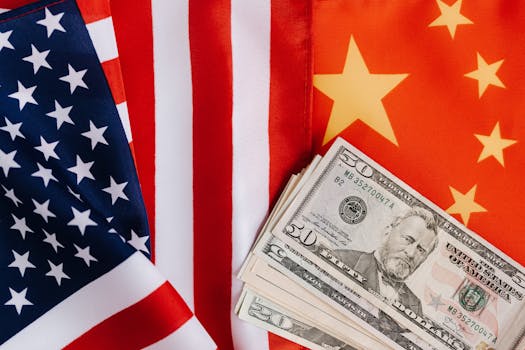
**
The global economy. A phrase that conjures images of bustling markets, technological innovation, and boundless opportunity. Yet, for many, the reality feels far different. A growing sense of unease, even anger, pervades discussions about the economy, with individuals feeling increasingly disconnected from the prosperity often touted by world leaders. This article delves into four key reasons why so many people believe the global economic system isn't working for them, exploring topics like income inequality, inflation, globalization, and automation, and providing insights into this widespread feeling of economic insecurity.
1. The Widening Gap: Income Inequality and the Stagnant Middle Class
One of the most significant contributors to the feeling that the global economy is rigged is the ever-widening gap between the rich and the poor. Income inequality has reached staggering levels in many countries, leaving a large segment of the population struggling to keep up. While the wealthiest individuals and corporations see their fortunes swell, the middle class – the backbone of many economies – finds itself stagnant or even shrinking.
This isn't just about raw numbers; it's about the perception of fairness. When individuals see massive wealth accumulation at the top while their own wages remain flat or even decline adjusted for inflation, it breeds resentment and distrust in the system.
- Key factors contributing to income inequality:
- Globalization and outsourcing: The movement of jobs to countries with lower labor costs.
- Automation and technological advancements: Replacing human labor with machines, leading to job displacement.
- Tax policies favoring the wealthy: Lower tax rates for high-income earners and corporations.
- Lack of access to quality education and healthcare: Limiting opportunities for upward mobility.
The Psychological Impact of Economic Insecurity
The consequences of income inequality extend beyond financial hardship. The constant struggle to make ends meet, the fear of job loss, and the inability to plan for the future create immense economic insecurity, leading to increased stress, anxiety, and even depression. This feeling of being left behind fuels the narrative that the system is designed to benefit only a select few.
2. The Inflationary Squeeze: Rising Costs and Eroding Purchasing Power
Another major factor contributing to economic anxiety is the persistent threat of inflation. Rising prices for essential goods and services, from groceries and housing to energy and healthcare, erode purchasing power, leaving individuals feeling financially squeezed. This is particularly acute for those on fixed incomes or with limited savings.
The current inflationary environment, driven by factors such as supply chain disruptions, geopolitical instability, and increased demand, has exacerbated this problem. Many find that their wages simply don't keep pace with the rising cost of living, leading to a constant struggle to maintain their standard of living.
Understanding Inflationary Pressures
Inflation isn't a simple issue with a single cause. It's a complex phenomenon shaped by several interacting factors:
- Supply chain disruptions: Global events and pandemics can create bottlenecks, limiting the availability of goods and driving up prices.
- Monetary policy: Decisions by central banks, such as interest rate hikes, can impact inflation.
- Geopolitical instability: Conflicts and political uncertainty can disrupt markets and increase prices.
- Increased energy costs: The cost of energy is a crucial component in the production and transportation of goods.
3. Globalization's Winners and Losers: The Uneven Distribution of Benefits
While globalization has undeniably driven economic growth in many parts of the world, its benefits haven't been shared equally. Many people feel that globalization has led to job losses in developed countries as companies relocate production to areas with lower labor costs. This leaves workers in developed nations facing increased competition and stagnant wages.
The narrative often overlooks the positive aspects of globalization, such as access to a wider variety of goods and services, lower prices for consumers on some items, and increased economic opportunities in developing countries. However, the perceived negative impacts – job displacement and increased competition – often dominate public discourse and contribute to feelings of economic injustice.
Rethinking the Globalization Narrative
A more nuanced understanding of globalization is crucial. It’s important to acknowledge both the benefits and the challenges, and to focus on policies that mitigate the negative consequences while maximizing the positive outcomes. This includes investing in education and training programs to equip workers with the skills needed in a globalized economy, and implementing policies that protect workers' rights and ensure fair competition.
4. Automation Anxiety: The Rise of Machines and the Fear of Job Displacement
The rapid advancement of automation and artificial intelligence (AI) is another major source of economic anxiety. The increasing use of robots and automated systems in various industries is leading to fears of widespread job displacement, particularly among those in lower-skilled occupations. This fear is exacerbated by the perception that the benefits of automation are primarily accruing to corporations and investors, while workers are left to bear the brunt of the job losses.
Addressing the Challenges of Automation
The key to mitigating the negative impacts of automation lies in proactive strategies:
- Investing in education and retraining programs: Equipping workers with the skills needed for jobs in the emerging sectors of the economy.
- Exploring alternative economic models: Considering a universal basic income or other safety nets to protect those displaced by automation.
- Promoting entrepreneurship and innovation: Creating opportunities for new businesses and jobs to emerge.
Conclusion:
The feeling that the global economy isn't working for many is not simply a matter of individual dissatisfaction; it reflects deeper systemic issues. Addressing income inequality, mitigating the impacts of inflation, fostering a more equitable globalization, and managing the transition to an increasingly automated economy are crucial for building a more just and sustainable economic future. Failing to do so will only exacerbate existing anxieties and further erode trust in the institutions that govern our economic lives. The challenge lies in finding solutions that ensure the benefits of economic growth are shared more widely, leaving no one behind.




















